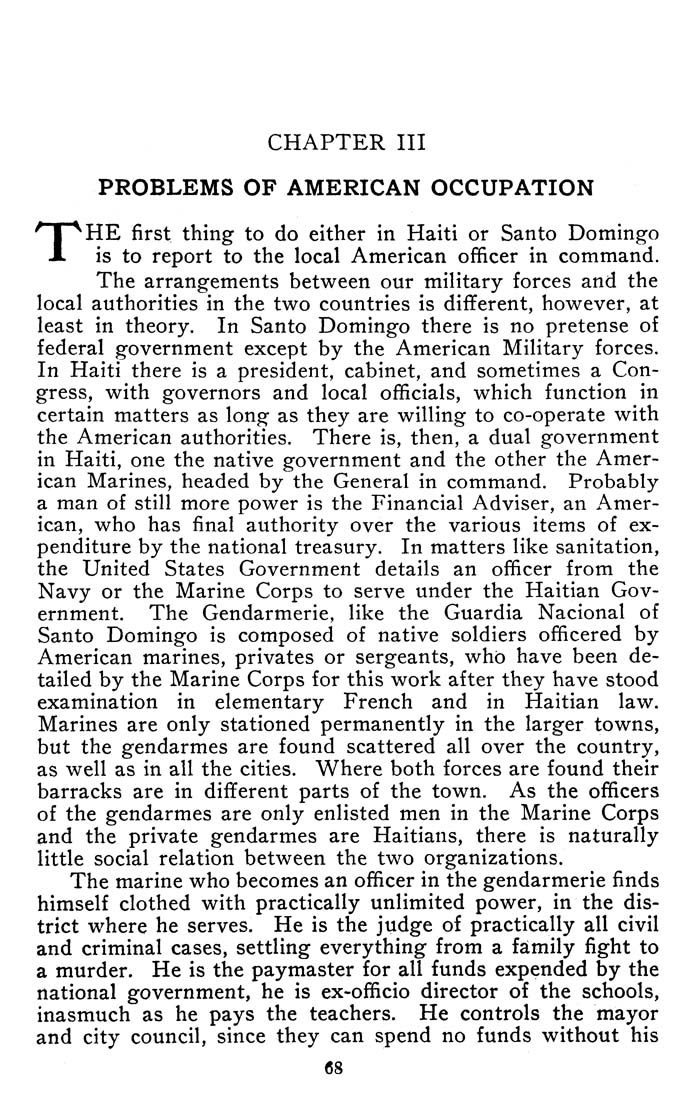CHAPTER III
PROBLEMS OF AMERICAN OCCUPATION
THE first thing to do either in Haiti or Santo Domingo
is to report to the local American officer in command.
The arrangements between our military forces and the
local authorities in the two countries is different, however, at
least in theory. In Santo Domingo there is no pretense of
federal government except by the American Military forces.
In Haiti there is a president, cabinet, and sometimes a Con¬
gress, with governors and local officials, which function in
certain matters as long as they are willing to co-operate with
the American authorities. There is, then, a dual government
in Haiti, one the native government and the other the Amer¬
ican Marines, headed by the General in command. Probably
a man of still more power is the Financial Adviser, an Amer¬
ican, who has final authority over the various items of ex¬
penditure by the national treasury. In matters like sanitation,
the United States Government details an officer from the
Navy or the Marine Corps to serve under the Haitian Gov¬
ernment. The Gendarmerie, like the Guardia Nacional of
Santo Domingo is composed of native soldiers officered by
American marines, privates or sergeants, who have been de¬
tailed by the Marine Corps for this work after they have stood
examination in elementary French and in Haitian law.
Marines are only stationed permanently in the larger towns,
but the gendarmes are found scattered all over the country,
as well as in all the cities. Where both forces are found their
barracks are in different parts of the town. As the officers
of the gendarmes are only enlisted men in the Marine Corps
and the private gendarmes are Haitians, there is naturally
little social relation between the two organizations.
The marine who becomes an officer in the gendarmerie finds
himself clothed with practically unlimited power, in the dis¬
trict where he serves. He is the judge of practically all civil
and criminal cases, settling everything from a family fight to
a murder. He is the paymaster for all funds expended by the
national government, he is ex-officio director of the schools,
inasmuch as he pays the teachers. He controls the mayor
and city council, since they can spend no funds without his
68
|








